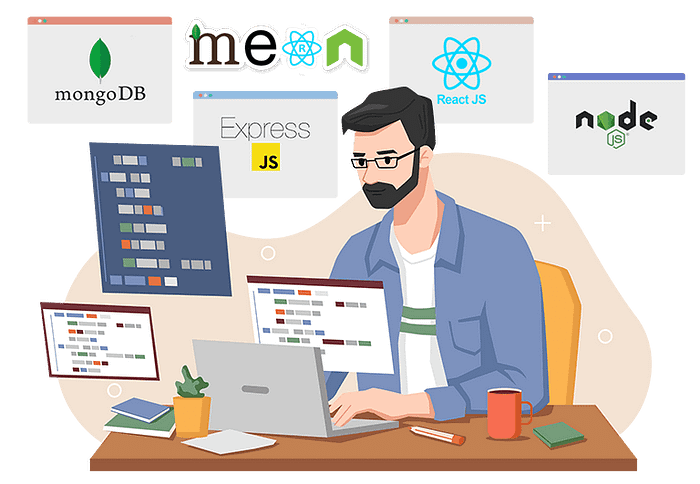MERN Stack vs. Other Frameworks: Why Choose MERN for Your Next Project?
When it comes to choosing the right framework for your next web development project, the options can be overwhelming. Each framework has its strengths and unique characteristics, making the decision a crucial one based on your project’s specific needs. One popular choice among developers is the MERN stack, which stands for MongoDB, Express.js, React, and Node.js. Let’s explore why MERN might be the ideal choice for your next venture.

What is the MERN Stack?
The MERN stack is a full-stack JavaScript framework that simplifies the development process by allowing developers to use JavaScript for both server-side and client-side development. Here’s a breakdown of its components:
- MongoDB: A flexible and scalable NoSQL database that stores data in JSON-like documents. MongoDB’s schema-less nature makes it ideal for projects requiring frequent updates and iterations.
- Express.js: A minimalist web framework for Node.js that simplifies the creation of web applications and APIs. It provides a robust set of features for building scalable and secure web applications.
- React: A powerful JavaScript library for building user interfaces. React’s component-based architecture and virtual DOM make it efficient for creating interactive and dynamic front-end applications.
- Node.js: A server-side JavaScript runtime environment built on Chrome’s V8 JavaScript engine. Node.js allows developers to run JavaScript code on the server, enabling seamless communication between the client and server sides of an application.
Why Choose MERN?
- JavaScript Everywhere: One of the most significant advantages of the MERN stack is the ability to use JavaScript throughout the entire development stack. This reduces the learning curve for developers who are already familiar with JavaScript, enabling them to write both front-end and back-end code without switching languages.
- Scalability and Performance: Each component of the MERN stack is designed for scalability and performance. MongoDB’s horizontal scaling capabilities, combined with Node.js’s non-blocking I/O operations, allow applications to handle large volumes of data and concurrent users efficiently.
- Rich Ecosystem and Community Support: The MERN stack benefits from a rich ecosystem of libraries, modules, and community support. React, for example, has a vast ecosystem of reusable components and third-party libraries, making it easier to build complex user interfaces.
- Flexibility and Customization: Unlike traditional monolithic frameworks, the MERN stack offers flexibility and customization options. Developers can choose from a wide range of libraries and tools to tailor their stack according to specific project requirements.
- Rapid Development: By leveraging reusable components and tools provided by the MERN stack, developers can significantly accelerate the development process. This rapid development cycle is particularly beneficial for startups and businesses looking to launch their products quickly.
Considerations
While the MERN stack offers many advantages, it’s essential to consider factors such as project requirements, team expertise, and long-term maintenance when choosing a framework. Other popular alternatives like MEAN (Angular instead of React) or MEVN (Vue.js instead of React) stacks also offer similar benefits and may better suit certain project needs.
In conclusion, the MERN stack stands out as a robust and versatile choice for building modern web applications. Its unified language, scalability, performance optimizations, and vibrant community support make it a compelling option for developers looking to create dynamic and efficient applications.
Whether you’re developing a startup MVP or scaling an enterprise application, the MERN stack’s combination of MongoDB, Express.js, React, and Node.js provides a solid foundation for success in today’s competitive digital landscape.
